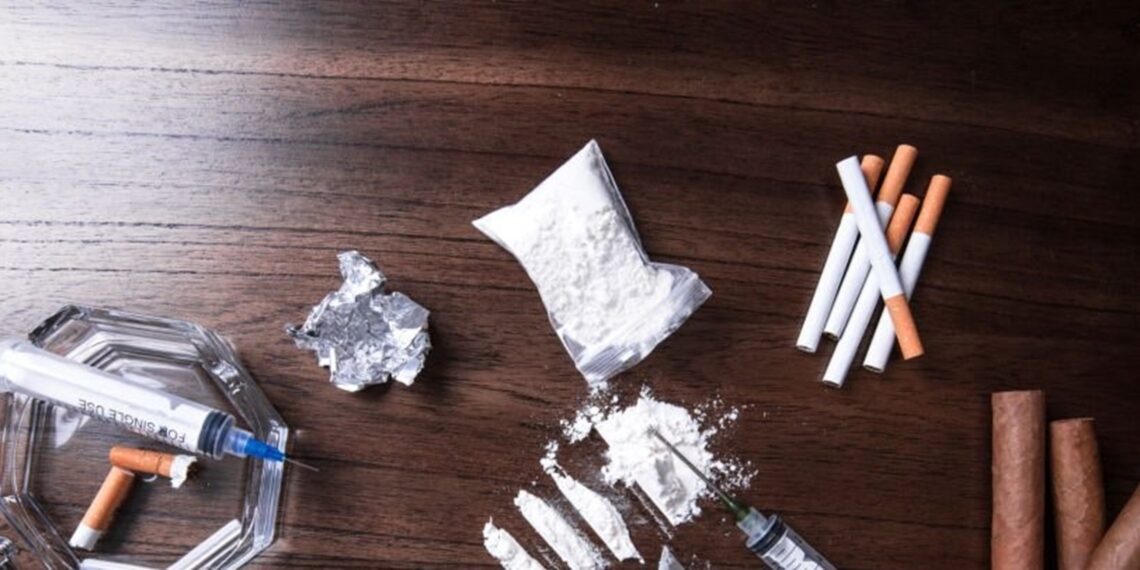Dimapur: Nagaland Director General of Police (DGP) Rupin Sharma has sounded a strong warning over the growing drug crisis in the Northeast, describing it as both a “public health emergency” and a “national security threat.”
He urged for a unified, technology-driven counterstrategy across states to combat the menace.
Speaking at the inaugural session of the two-day Conference of Anti-Narcotics Task Forces (ANTF) for the Northeast, including Sikkim and West Bengal, Sharma said the region has become the epicentre of India’s war on drugs due to its proximity to the Golden Triangle and the porous India-Myanmar border.
“The border, left largely unfenced under the Free Movement Regime, allows traffickers to merge with ethnic kin and cross without scrutiny. What we are dealing with is not just a policing issue — it is a fight for internal security and the future of our youth,” he said.
Citing alarming figures, Sharma revealed that Nagaland alone has an estimated 1.2 lakh drug users, with heroin, locally known as Shaanflower, being the most abused substance.
“Even if half of them consume half a gram daily, that means Nagaland alone needs over 10,000 kg of heroin a year — and close to one lakh kilograms for the entire Northeast,” he said.
He warned that the illicit trade directly fuels organised crime, insurgency, and narco-terrorism.
“Dismantling drug cartels is synonymous with enhancing national security,” he said, adding that several insurgent cadres are personally involved in trafficking.
Sharma outlined a three-tier operational model focusing on coordination, enforcement, and accountability.
He called coordination the “Achilles heel” of India’s anti-narcotics framework, urging states to shift from a “need-to-share” to a “duty-to-share” approach and to conduct joint interrogations via video conferencing within 24 hours of arrests.
He emphasised the need for modern investigative tools — from darknet tracking and cryptocurrency monitoring to digital forensics — and called for strict compliance with the NIDAAN portal for real-time intelligence exchange.
The DGP also suggested better cooperation with banks and the Financial Intelligence Unit (FIU) for swift tracing of illegal money trails.
Highlighting the growing threat of synthetic drugs like methamphetamine and WY tablets, he urged the use of drones and satellite mapping to detect poppy fields and clandestine laboratories.
He also stressed that law enforcement must match the 24×7 pace of banking systems to stay ahead of traffickers.
Sharma identified weak prosecution as another major gap, saying, “Our operations lose meaning if the legal process collapses.”
He recommended better case documentation and shared biometric criminal databases accessible to all law enforcement agencies.
Among key policy suggestions, the DGP proposed amending the NDPS Act, 1985, to incorporate graded sentencing and updated provisions for modern challenges.
He also recommended creating a Northeast Anti-Drug Trafficking Agency and establishing narcotics forensic laboratories in each state, supported by mobile forensic units.
He further proposed a “Nasha Mukt Bharat Helpline and Reward System” to encourage public reporting of drug crimes and uniform guidelines for preventive detention under PITNDPS to prevent misuse.
ALSO READ: Passenger caught at Agartala airport with gold biscuits concealed in body
Showcasing Nagaland Police’s recent initiatives, Sharma highlighted the use of AI-based lawful intercept transcription in collaboration with NIT Mizoram, ANPR cameras on key trafficking routes, and facial recognition systems for tracking suspect vehicles.
Emphasising that rehabilitation is “a defeat for the cartel,” he called for greater involvement of NGOs, churches, and community organisations in treating addiction.
“A recovered addict is not a statistic — it’s a community victory,” he said.
He concluded by urging participating states to use the conference as a platform for solving real problems rather than showcasing achievements.
“The war against drugs will be long and difficult. Let us build trust, target kingpins, and safeguard the Northeast’s future for a truly drug-free India,” he said.















